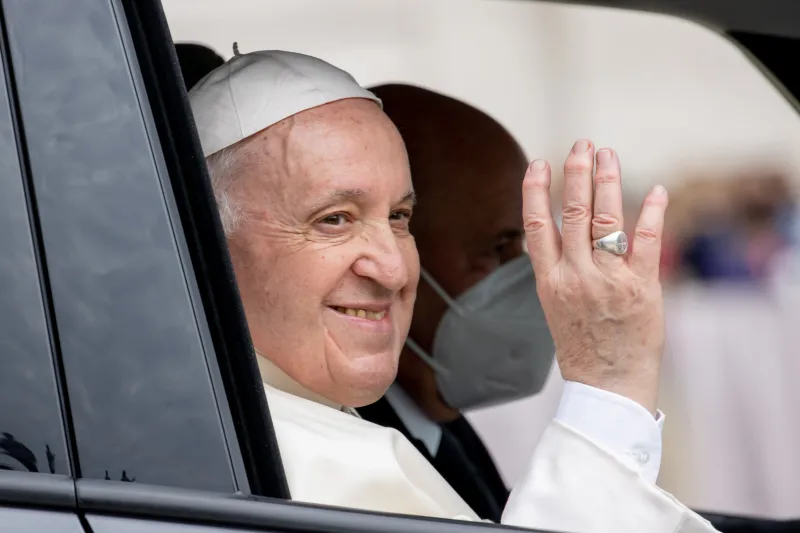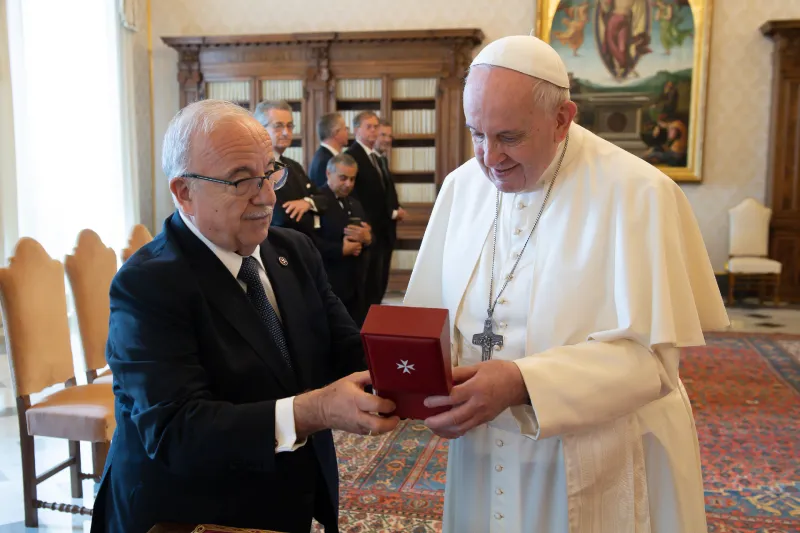
Pope Francis returns to Africa this week, on a three-nation apostolic visit that will take him to Mozambique, Madagascar, and Mauritius, beginning on Wednesday, September 4th and concluding the following Tuesday, the 10th.
The visit comes just a few weeks after the Symposium of Episcopal Conferences of Africa (SECAM), celebrated its 50th anniversary, and hosted its 18th plenary assembly in Uganda. SECAM brings together regional bishops conferences in Africa, and promotes collegiality among the bishops.
Pope Francis has already released video messages addressed to the people of Mozambique, Madagascar, and Mauritius. The common thread in the themes chosen for his visit to the three countries is “Peace, Hope and Reconciliation”. If one were to judge the state of the continent by a quick scan of recent news headlines from Africa, it appears these three elements of peace, hope, and reconciliation are in short supply on the African continent at the moment.
Pope Francis’ first stop, Mozambique, is a former Portuguese colony which has endured a long running civil war that claimed the lives of more than a million people between 1977 and 1992, with flare-ups of violence since 1992. In recent years, Islamist insurgency in the northern region has been an emerging threat to the stability of the southern African country, in addition to devastating cyclones the latest being Cyclone Kenneth and Idai, which made landfall barely a month apart and killing over 1000 people.
I first learned of the long-running peace process in Mozambique in 2007 during a visit to the Community of Sant’Egidio, in Rome. As I was shown around and told about some of the work that Sant’Egidio is involved in, we came across a room in which, on October 4, 1992, a comprehensive peace deal had signed between then-Mozambican President Joachim Chisano and Afonso Dhlakama, leader of the Mozambican National Resistance, ReNaMo. Incidentally, one of the key mediators in the negotiations, Archbishop Matteo Zuppi of Bologna, was named recently as one of 13 prelates who will be made a cardinal by Pope Francis in October.
Almost 27 years later a new peace agreement was signed, this time with President Felipe Nyusi and ReNaMo leader Ossufo Momade stepping up for their respective parties. After a period of relative calm in the post-1992 period, bursts of conflict have been experienced periodically, especially around elections, hence the new round of peace talks and agreement. However, the agreement faces a stern test as Mozambique gears up for presidential, provincial, and parliamentary polls slated for October 15th. When President Nyusi paid Pope Francis a visit at the Vatican last September, he received as a gift from the Holy Father a medallion with the words “seek that which unites and surpasses that which divides” and a signed copy of Francis’ 2019 message for World Day of Peace.
Pope Francis, in his video message to the people of Mozambique ahead of his visit, reiterated his message of reconciliation, inviting them to join with him “in praying that God, the Father of all, may strengthen efforts towards reconciliation, fraternal reconciliation in Mozambique and throughout Africa, which is the only hope for a solid and lasting peace”, adding that he looks forward to “seeing how grows the seed sown by my predecessor St. John Paul II.”
Just like his first visit to Africa in 2015, during which he visited Kenya, Uganda, and the Central Africa Republic, peace efforts will be at the top of his agenda, not just for Mozambique, but with a likely focus as well on conflict resolution efforts in the Republic of South Sudan. Earlier this year, the Vatican hosted a retreat for the top echelons of South Sudanese leadership, led by President Salva Kiir on one side and former vice president turned rebel leader, Riek Machar, at the end of which Pope Francis made the extra-ordinary gesture of kissing the feet of the South Sudanese leaders as he pleaded with them to restore peace in the youngest African nation.
While Pope Francis’ visit will be in the South of the continent, many Catholics in the West will be watching closely, in part because of the numerous attacks that lay people, clergy and churches from Nigeria to Burkina Faso have endured in recent months. Archbishop Ignatius Kaigama of Abuja, Nigeria, who is also president of the Regional Episcopal Conference of West Africa (RECOWA), lamented in July 2019 that “biased and prejudiced official security reports heighten tension when they blame the victims instead of the aggressors because of the Nigerian ‘factor’ of tribal or religious affiliation.”
During my short visit to Lagos and Abia state in May this year I got the impression, while listening to those I spoke with about attacks on churches, that many felt abandoned by the authorities, who seemed either unable or unwilling to prevent attacks. In an interview with America Magazine, Fr. Agbonkhianmeghe Orobator, SJ, who is the president of the Jesuit Conference of Major Superiors of Africa and Madagascar, pointed out that Pope Francis visit to Africa will once again highlight the “serious gap or dearth of leadership”, to which “everything that goes wrong in Africa can be traced back to–be it corruption, violence, poverty, unemployment, migration or political dysfunctionality.” Fr. Orobator further stated that Africa’s leaders “are like the biblical shepherds who feed on their flock and disorient, destroy and scatter them (Jer 23:1-4; Ez 34:2-5).” “Our putative leaders have a lot to learn from the pastoral leadership style of Pope Francis”, he observes.
While many commentators generally like to point to the numbers when assessing the growth of the Church in Africa as compared to other parts of the world, Fr. Orobator opines that “the quality of faith and the depth of commitment to the Gospel count as more important criteria. On a continent full of bad news, [the question is], how can the Gospel become good news?”
It seems, on balance, that the Mozambique leg of Pope Francis’ three-nation visit, may yet be the most challenging bit of his trip, but it is hard to place a bet on that given the surprises that often take place during papal trips.
As the people of Beira struggle to rebuild their city, destroyed by Cyclone Idai in March this year, Pope Francis visit may well bring back memories of the concluding words of Saint Pope John Paul II’s homily at the Largo de Goto, in September of 1988:
Once again with you, I pray with the psalmist’s inspired words: “God have compassion on us!” God have compassion for your country! And give you his blessing, to continue the work of evangelization that commits you to reveal to everyone, adults and children, “the mystery hidden for centuries and generations” (Col 1:26). And let the light of his face shine upon you!
If you value the news and views Catholic World Report provides, please consider donating to support our efforts. Your contribution will help us continue to make CWR available to all readers worldwide for free, without a subscription. Thank you for your generosity!
Click here for more information on donating to CWR. Click here to sign up for our newsletter.







In the task of world-building, the African continent and its inhabitants are yet to realize their enormous potential.
Maybe they can keep him there. God knows that Rome would be much better if El Popo was not here